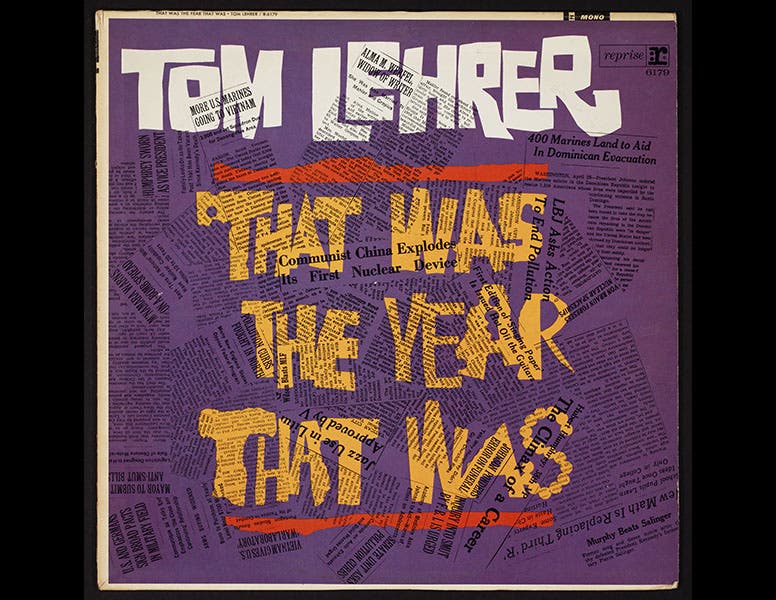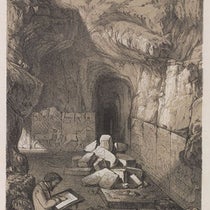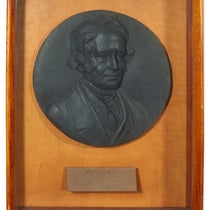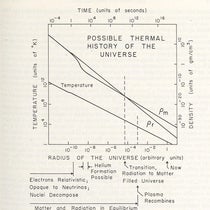Scientist of the Day - Tom Lehrer


Tom Lehrer, an American mathematician turned song-writer, was born Apr. 9, 1928. Lehrer studied mathematics at Harvard, but in the 1950s he began performing satirical songs that he had written, accompanying himself on the piano. In 1953, he released his first album, Songs of Tom Lehrer, which he sold from his home by mail. His tunes embraced such warm topics as dope-peddling, southern conservatism, and obsession with the dead, and consequently, his songs were seldom played on the radio. His reputation was therefore slow to spread, but spread it did, and by 1959, when he released his second album, he was moderately well-known, at least on college campuses. His appeal to his audiences lay mostly in the cleverness of his song-writing, his deft piano playing, and his nimble tongue; his appeal to us lies in all this plus the fact that many of his subjects were scientific. His song "Elements", from his second album in 1959, is nothing but a list of the 102 then-known chemical elements, sung to the tune of the “Major General” song from Pirates of Penzance, but it is just brilliant. You can see him perform it on this YouTube video, a recording of a performance he gave in Copenhagen 1967, one of the few times he was recorded on film. Once you have watched Lehrer perform “Elements”, you might watch this video, where actual images of the elements are rapidly superimposed over Lehrer's voice, and which will make you appreciate his cleverness even more. Who knew you could rhyme the elements so well--and so mellifluously!
Other songs with a scientific theme are "Lobachevski”, which is not so much about the mathematician as it is about plagiarism, and "Who's Next", about the dangers of nuclear proliferation. Considering that most of these songs were written over 60 years ago, they have a remarkable timeliness still today. Even "Vatican Rag," Lehrer's modest contribution to the reform of the Catholic liturgy, is just as funny today as it was during the days of Vatican II.
Perhaps Lehrer's most barbed satiric piece is "Werner von Braun," which took serious issue with scientists who lack social responsibility, whose "allegiance is ruled by expedience." "Once ze rockets go up, who cares where zay come down. That's not my department, says Werner von Braun." You can see Lehrer perform the song here.
Lehrer ceased public appearances in 1974 and has turned down, with only several exceptions, all requests to reprise his performances of the 1960s. He is reputed to have said that the award of the Nobel Peace Prize to Henry Kissinger in 1973 made political satire obsolete. He seems to have been quite happy teaching mathematics at UC-Santa Cruz until his retirement. We wish him a happy 90th birthday!
The album covers shown are the Reprise reissues of the first and third LP albums, and the photo of Lehrer performing was taken in the 1960s.
Dr. William B. Ashworth, Jr., Consultant for the History of Science, Linda Hall Library and Associate Professor, Department of History, University of Missouri-Kansas City. Comments or corrections are welcome; please direct to ashworthw@umkc.edu.







